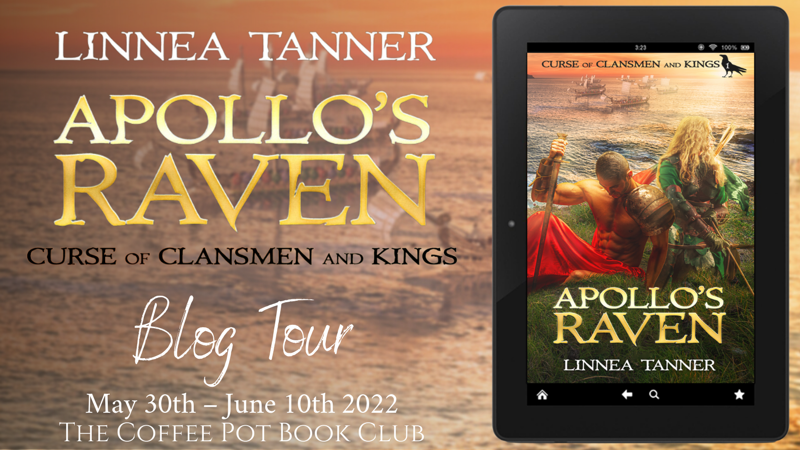
A Celtic warrior princess is torn between her forbidden love for the enemy and duty to her people.
AWARD-WINNING APOLLO’S RAVEN sweeps you into an epic Celtic tale of forbidden love, mythological adventure, and political intrigue in Ancient Rome and Britannia. In 24 AD British kings hand-picked by Rome to rule are fighting each other for power. King Amren’s former queen, a powerful Druid, has cast a curse that Blood Wolf and the Raven will rise and destroy him. The king’s daughter, Catrin, learns to her dismay that she is the Raven and her banished half-brother is Blood Wolf. Trained as a warrior, Catrin must find a way to break the curse, but she is torn between her forbidden love for her father’s enemy, Marcellus, and loyalty to her people. She must summon the magic of the Ancient Druids to alter the dark prophecy that threatens the fates of everyone in her kingdom.
Will Catrin overcome and eradicate the ancient curse. Will she be able to embrace her forbidden love for Marcellus? Will she cease the war between Blood Wolf and King Amren and save her kingdom?
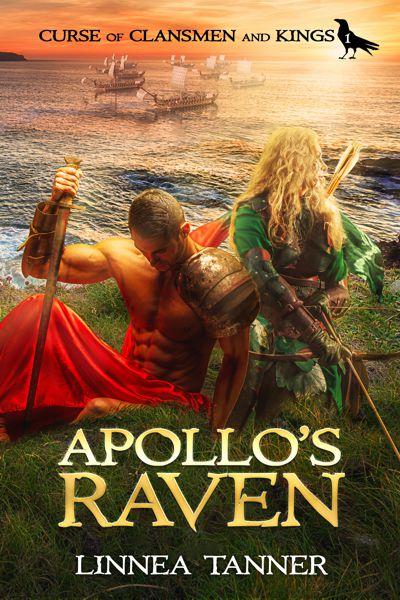
How Druids Are Incorporated in Apollo’s Raven
Role of Druids
The role and magical abilities of druids incorporated in Apollo’s Raven are based on Roman accounts and Welsh and Irish legends. Roman General Julius Caesar (100 BC – 44BC) describes the druids as intellectuals in Celtic society. Druids officiated at the worship of the gods, regulated public and private sacrifices, and gave rulings on all religious questions. Roman historian Pomponius Mela writes, “The Druids profess to know the will of the gods.”
In one scene in Apollo’s Raven, the druidess Agrona—a spiritual advisor to King Amren—performs a sacrificial ritual to seek a positive omen from the gods before a tense negotiation between a Roman envoy and King Amren. Rituals are woven into all aspects of Celtic life, for there was an everyday need to appease the gods. A ritual, properly conducted, leads to the outcome the druid sought—a successful outcome in a meeting, for example, in Apollo’s Raven. Rituals were held before rather than after the desired event.
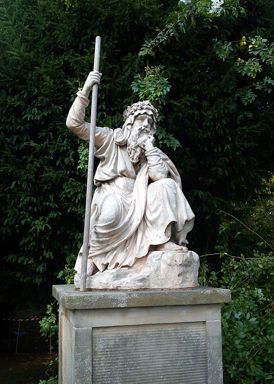
In another scene, King Amren walks barefoot over a bed of burning coal and does not suffer harm. He considers this to be a good omen that the punishment he will decree on his former treasonous queen would be approved by the gods. The ritual is based on an account by Publius Terentius Varro, a Narbonese Gaul (82-36 BC) in which a noble of distinction walks over hot coals three times while carrying a sacrificed animal’s entrails in his hands. If his feet did not burn, it is considered a good omen for the entire community.
The most profound philosophy that Caesar highlighted about the druids was their belief that the soul does not perish but passes from one body to another after death. According to him, the bravery of the Celts sprang from their lack of fear of death—the result of their belief that the soul does not die but is reincarnated after death. I took literary license to expand on the concept of the soul as a way to explain the mystical powers of Catrin, the Celtic female protagonist. Instead of formal training as described by historical accounts, a raven guide shows her how her soul can travel to the Otherworld of the dead and call on the magic of the Ancient Druids. At a transitional barrier between the physical world and the Otherworld called the Wall of Lives, she can foretell the future from how the life threads of each person weave in and out of a tapestry until his or her death.
The druids venerated the human head above all else because it was considered to be the temple of the soul — the center of emotions as well as of life itself, and a symbol of divinity and the powers of the world of the spirits. To possess the enemy’s head was to possess his soul. Catrin’s half-brother, Marrock, beheads his victims and summon the powers of the souls trapped in their skulls.
An example of the power of the head is taken from Welsh legend. The mortally wounded Bran urges his companions to remove his head and take it back to the Island of the Mighty (Britain) for burial. Bran’s head eats, drinks, and instructs the soldiers on the journey back. The head is buried (legend has it that the site was Tower Hill in London) looking toward France so that, in accordance with Celtic custom, he could protect the land against invasion.
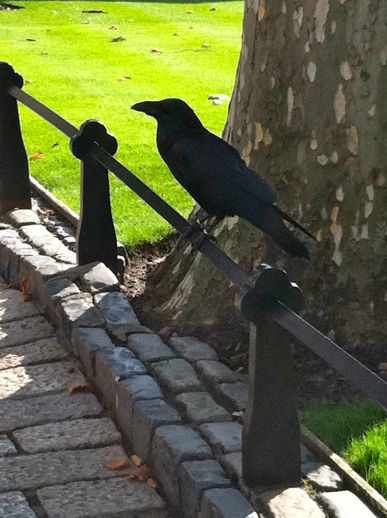
Celtic Magic
The Roman historian, Pliny the Elder (23 AD – 79 AD), referred to the druids as the magi. “Even today Britain is still spellbound by magic, and performs its rites with so much ritual that it might almost seem to be a source of Persian customs.”
Celtic literature and tradition also popularly referred druids as magicians—wizards possessing supernatural powers. By the time of the advent of Christianity in both Ireland and Britain, druids were identified by the word magi —a name used for the priests of ancient Persia who reputedly had power over supernatural entities. Early Celtic Christian writers who believed in druidic magic gave these supernatural powers to saints in their church.
Some of the fantastical elements in the Curse of Clansmen and Kings series are based upon magic from Welsh and Irish legends as described below.
Control Forces of Nature
Druids could summon magical fog and storms to destroy or disperse their enemies. King Amren’s former wife, Rhan, had the power to summon lightning and to strike his enemies dead on the battlefield. In Irish mythology, Broichán, the chief Druid of the Pictish King Bruide, summons a terrific storm to stop Colmcille from crossing Loch Ness. The great magician Mathgen summons the mountains to crush the enemy by proclaiming: “Through my power I can throw down all the mountains of Ireland on the Fomor, until their tops will be rolling on the ground.”
Shapeshifting
Shapeshifting is another ability ascribed to druids. Marrock is a shapeshifter who can take the form of a large red wolf in Apollo’s Raven. Later books in the Curse of Clansmen and Kings series expand on Marrock’s and Catrin’s abilities to shapeshift into various forms. In Irish mythology, the druid Fer Fidail assumes the form of a woman. Druids can also turn into animals. For example, Fer Doirche changed the beautiful Sibh into a deer when she rejects his love.
Drink of Oblivion
Another druidic tool that will be explored in the series is the drink of oblivion. The potion makes people forget even their closest friends and loves. In a scene the second book, Dagger’s Destiny, Druidess Agrona forces the lead Roman character, Marcellus, to drink the potion so his memory of Catrin is erased.
Serpent Egg
Perhaps it was Pliny’s fascination with magic that he recounted the anguinam, the ‘Druid’s eggs’ or ‘serpent’s eggs.’ He possessed one of these eggs that looked like a crystal about the size of a moderately sized apple. The eggs were reportedly made by hissing snakes put together, the foam from their mouths producing a viscous slime which became a ball when tossed in the air and caught by a druid who then used it to counteract incantations. The serpent egg will become a powerful symbol in Dagger’s Destiny and subsequent books in the Curse of Clansmen and Kings series.
References
Peter Berresford Ellis, The Druids; 1995; William B. Eerdmans Publishing Company, Grand Rapids, MI.
John Davies, The Celts: Prehistory to Present Day; 2005; United States: Sterling Publishing Co., New York.
Julius Caesar, translated by F. P. Long, 2005. The Conquest of Gaul; United States: Barnes & Noble, Inc.
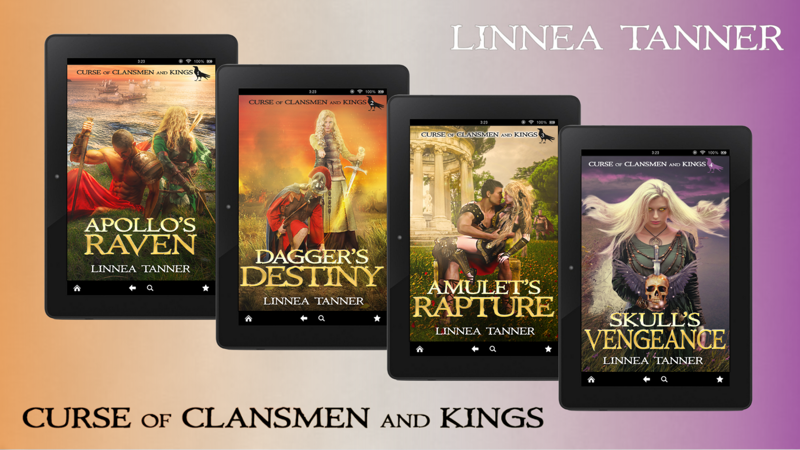
APOLLO’S RAVEN:
Amazon (Universal Link): https://books2read.com/u/4DKGMg
Amazon UK: https://www.amazon.co.uk/dp/B0848QHHK4/
Amazon US: https://www.amazon.com/dp/B0848QHHK4/
Amazon CA: https://www.amazon.ca/dp/B0848QHHK4/
Amazon AU: https://www.amazon.com.au/dp/B0848QHHK4/
Barnes and Noble: https://www.barnesandnoble.com/w/apollos-raven-linnea-d-tanner/1125792731?ean=2940161846049
Waterstones: https://www.waterstones.com/book/9781948543293
Kobo: https://www.kobo.com/us/en/ebook/apollo-s-raven-2
iBooks: https://books.apple.com/us/book/apollos-raven/id1497211722
GooglePlay: https://play.google.com/store/books/details/Linnea_Tanner_Apollo_s_Raven?id=sSbNDwAAQBAJ
Booktopia: https://www.booktopia.com.au/apollo-s-raven-linnea-tanner/book/9781948543293.html
Books-A-Million: https://www.booksamillion.com/search?query=9781948543293&AID=35140&PID=6172252&SID=kxqdk37d3b01wlps0001m&cjevent=5e966e16680211ec817835ad0a1c0e0b
AUDIO: (Narrated by Kristin James)
Audible: https://www.audible.com/pd/Apollos-Raven-Audiobook/B072C2N25B
iTunes: https://itunes.apple.com/us/audiobook/apollos-raven-unabridged/id1240427604
Series Links:
Apollo’s Raven (Book 1): https://books2read.com/u/mVRR0J
Dagger’s Destiny (Book 2): https://books2read.com/u/bxQQro
Amulet’s Rapture (Book 3): https://books2read.com/u/mdddX5
Meet Linnea Tanner

Award-winning author, Linnea Tanner, weaves Celtic tales of love, magical adventure, and political intrigue in Ancient Rome and Britannia. Since childhood, she has passionately read about ancient civilizations and mythology. Of particular interest are the enigmatic Celts, who were reputed as fierce warriors and mystical Druids.
Linnea has extensively researched ancient and medieval history, mythology, and archaeology and has traveled to sites described within each of her books in the Curse of Clansmen and Kings series. Books released in her series include Apollo’s Raven (Book 1), Dagger’s Destiny (Book 2), and Amulet’s Rapture (Book 3). Skull’s Vengeance (Book 4) is anticipated to be released in late 2021 or early 2021.
A Colorado native, Linnea attended the University of Colorado and earned both her bachelor’s and master’s degrees in chemistry. She lives in Fort Collins with her husband and has two children and six grandchildren.
Connect with Linnea
Website: https://www.linneatanner.com/
Twitter: https://twitter.com/linneatanner
Facebook: https://www.facebook.com/linnea.tanner
LinkedIn: https://www.linkedin.com/in/linnea-tanner-a021932b/
Instagram: https://www.instagram.com/linneatanner/
Pinterest: https://www.pinterest.com/linneatanner/_created/
BookBub: https://www.bookbub.com/authors/linnea-tanner
Amazon Author Page: https://www.amazon.com/Linnea-Tanner/e/B01N6YEM04
Goodreads: https://www.goodreads.com/author/show/16474282.Linnea_Tanner
Thank you so much for hosting the blog tour for Apollo’s Raven.
All the best,
Mary Anne
The Coffee Pot Book Club